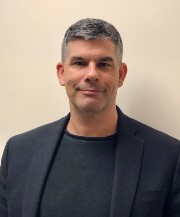
Dave Carlson's Words of Wisdom:
After 56 years in the Corrugated Containers industry (and counting), I still enjoy it. Just like the famous Mark Twain quote, “find a job you enjoy doing, and you will never have to work a day in your life.” My father certainly passed down his work ethic mindset. If you don’t envision your goals, you’ll lose focus. You always need a plan! Knowing what you want to do in the next few years will help you wake up in the morning and charge ahead.
| Chris Czyryca | |
 |
Is there any particular review that has impacted you? Please tell us about your experience.
I’ll share one that shows the folly of youth and why we need new ideas. Sometimes you must accept the fact that your ideas won’t be accepted by the rest of the group. It involves the MIT Folding Endurance Test; I was involved with that very early on. The result of the testing in laboratories can be very erratic because of the nature of the test. It lacks consistency both in the laboratory or in between laboratories. Being a young person with bright ideas and full of new ways of looking at things, I looked at the variation there and decided it would be much better if we reported the results as the law of arrhythmic value of the folding endurance; especially for samples that were above a certain value. However, when you do that it becomes a very nice linear test where you’re able to make the results that come from that testing process look a whole lot more conventional to those technicians. It turns out that no one shared the view that it would be a good idea to move that test for the sole reason of making the statistics. There were certainly things like existing SOPs, existing methods, existing specifications, and government requirements that did not enter my young brain at that point.
This is a situation where I brought a new idea to the table and I was told that it’s probably not the right direction for the industry to proceed. It was a learning experience because it showed the value of looking at things from many different viewpoints and not strictly a technical viewpoint (If you must make the method comprehensible to the actual users). It’s a lesson I carried with me.
TAPPI Methods are wonderful. They are very specific; and they give you a single answer, but we don’t want to overwhelm the audience with technical jargons and requirements that aren’t essential to the method.
| Martti Tuomisto | |
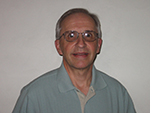 |
What has been your experience serving as a board member of the TAPPI Lake States / North Central PIMA Local Section?
I’ve been a board member of the TAPPI Lake States Local Section for the last 11 years. We organize technical sessions and other activities. For example, we conduct the Energy Forum every fall and a maintenance conference or other type of technical meeting every spring. Due to the pandemic, we have had virtual sessions as opposed to in-person sessions. TAPPI Lake States Local Section also organizes golf outings and clay shoots in Wisconsin, Minnesota, and soon in Michigan. The purpose of our local meetings is to provide learning and networking opportunities for mill people who don’t get a chance to go to TAPPICon in Atlanta or other big cities. They can easily attend local events, since those are usually within a driving distance from their mill. We cover innovations, energy, maintenance, grade conversions, process controls, safety and other practical issues that mill people are interested in. We want to provide an environment for mill people to learn from other experts.
Another purpose for the TAPPI Lake States Local Section is to raise money and invest for the purpose of providing scholarships to paper science and engineering students at local universities. For example, we provide scholarships to the University of Wisconsin (Stevens Point), which has a combined Paper Science and Chemical Engineering program. Also, to the University of Minnesota, which has a bioengineering program that involves some aspects of papermaking, plus to Western Michigan University and Fox Valley Technical College. Basically, just about all our funds will eventually go into scholarships.
| Donald Guay | ||
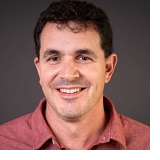 |
What do you think would be a good way for the industry to recruit new talent?
From the industry perspective, there’s always this stigma of manufacturing. First, you must overcome that. The headlines of mills closing is always a problem. Most people don’t understand that the overall industry is very successful and in demand. Tissue, liner, and specialty paper are very stable, and in many cases growing. What people hear is that printing and writing mills are going away. What they don’t necessarily hear about are mills like the one in Rumford, Maine. The Rumford mill last year was 100% printing and writing; this year it may not even be 50% printing and writing anymore, but it’s still running. There’s a misconception about the future of the industry and that paper is going away, but most people don’t understand that printing and writing paper is a relatively small portion of the industry. Though it may continue to shrink, the rest of the pulp and paper industry is significantly stable
Most people I work with love outdoor activities and most paper mills are in smaller communities. If there was a way to increase the work force, I would focus my efforts on recruiting in small communities where the general public is prone to hunting and fishing, rather than big cities. Most of the jobs aren’t in cities.
“It’s about the people you meet. I can’t tell you how many times I reached out to someone I met at a conference and ended up collaborating with them” – Don Guay, Ph.D.
| Dave Carlson | ||
What would you tell industry colleagues, whether they be box makers, suppliers to our industry or box users that have never participated in Standard activities?
It depends on who you are talking with. Some may not understand the need to have uniform methodologies of measuring characteristics used in our industry. For example, when using raw materials, you want to make sure they’re correct. For suppliers, you can explain that this is what the industry uses, and there are recognized test methods to follow to assure compliance with requirements. You almost have the same message for your senior leadership. They may question the process and ask, “Why are we doing this? Why do we have a lab?” The answer is we need to have well-equipped and staffed labs, in-house, following recognized standard test methods to demonstrate to our customers that we are meeting/exceeding their specifications. The industry’s test methods have evolved over time to allow you to do that. You are now less likely to be taken advantage of by someone trying to “cook the books.” For example, if someone says they are measuring Box Compression or ECT while using Standards, all you need is a lab and access to TAPPI Standards T 804 Compression test of fiberboard shipping containers and T 826 Short span compressive strength of containerboard to proceed.
Does working with Standards give you a sense of fulfillment?
There’s a sense of satisfaction when working on a project and bringing it to fruition. You can look back and say, “I worked with a certain team to accomplish development of a new Standard, or we found a different way of measuring an existing characteristic”. There’s a real sense of accomplishment and pride in working towards a goal. The different people one encounters when working on different committees become an accessible list of people to call when in need of opinions for your company.
| Glenn Rogers | |
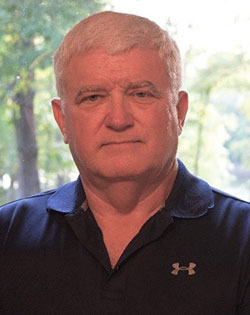 |
Why do you think Standards are important? How have you used them in your field?
Consistency! I’m the keeper of the specs at Pratt Industries. The consistency across the mills is important. I have used Standards to set production specifications. In fact, those specifications are based on Standard Test Methods. Without them we can’t condition or re-condition certain properties. We have also used Standards to deal with complaints in terms of measurements. Often, a customer will run a test under an air conditioner, which is not a lab environment. So, you can’t really consider those types of results relevant to the test.
What has been your experience serving as Secretary, then, Chair of the Fiberboard Shipping Container Testing Committee (FISCOTEC)?
I assumed the secretary position in FISCOTEC because I was uncomfortable with my understanding of the Standards process. I stepped out of my comfort zone to develop a better understanding and to be more comfortable with it. I eventually grew into the position and became Chair of FISCOTEC.
| Tony Lyons | |
 |
Is there any particular review that has impacted you? Please tell us about your experience.
Five or six years ago I worked on a Standard related to the brightness of pigments. I was involved in the pigment industry for most of my career. The measurement of brightness is very important and it’s something that all our customers paid attention to. It was a Standard we paid attention to in terms of quality and control of our products. The Working Group Chair had resigned, and I was asked to fill the void. I found out that it was more than a technical review. Although there were technical corrections to be made, the negotiating process with others showcased how important this Standard was to the industry. There were folks who were just looking at it from a technical standpoint and wanted to replace the TAPPI Standard with an ISO Standard, which would have been a total change for the entire industry in terms of how they looked at pigments and how they measured the brightness of pigments. I found it very impactful learning that there’s more to Standards than the technicalities of Standards.
| M. Todd Popson | ||
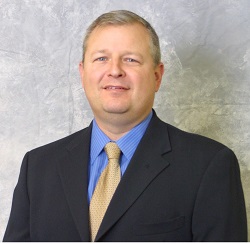 |
What would you tell people that have never participated in ISO TC6 activities?
You are part of a team! The US TAG group represents the interests of the United States from a global expert standpoint. I joke with our participants and call them Team USA. The physical representatives at the last TC6 meeting were Jeff Lundeen, Dave Loebker and me. Occasionally, we would start chanting “USA, USA, USA!” and joke about representing the US. It was fun and lighthearted. There is structure in the process, and we are always looking for people with expertise, but also people who want to learn and contribute. You have the opportunity to touch on many areas, since every member has the option to review balloted votes. Recommended votes go through the entire TAG, and everyone has the chance to participate or learn from those ballots. Participation level is guided by what a voter can do or wants to do. We have a group of 37 experts on the team, as opposed to 1-3 people in some other countries’ teams. My goal is to continue to expand because there’s a vast amount of learning opportunities.
Interviews conducted/ written by Souadou Camara
Assisted by Mary Anne Cauthen
Special thanks to Editor in Chief: Janet LoBue
Thank you all for your contribution to TAPPI!
If you would like to share your experience with Standards, TIPs or U.S. TAG to ISO TC 6, please write to standards@tappi.org and the TAPPI Standards team will be happy to interview you.